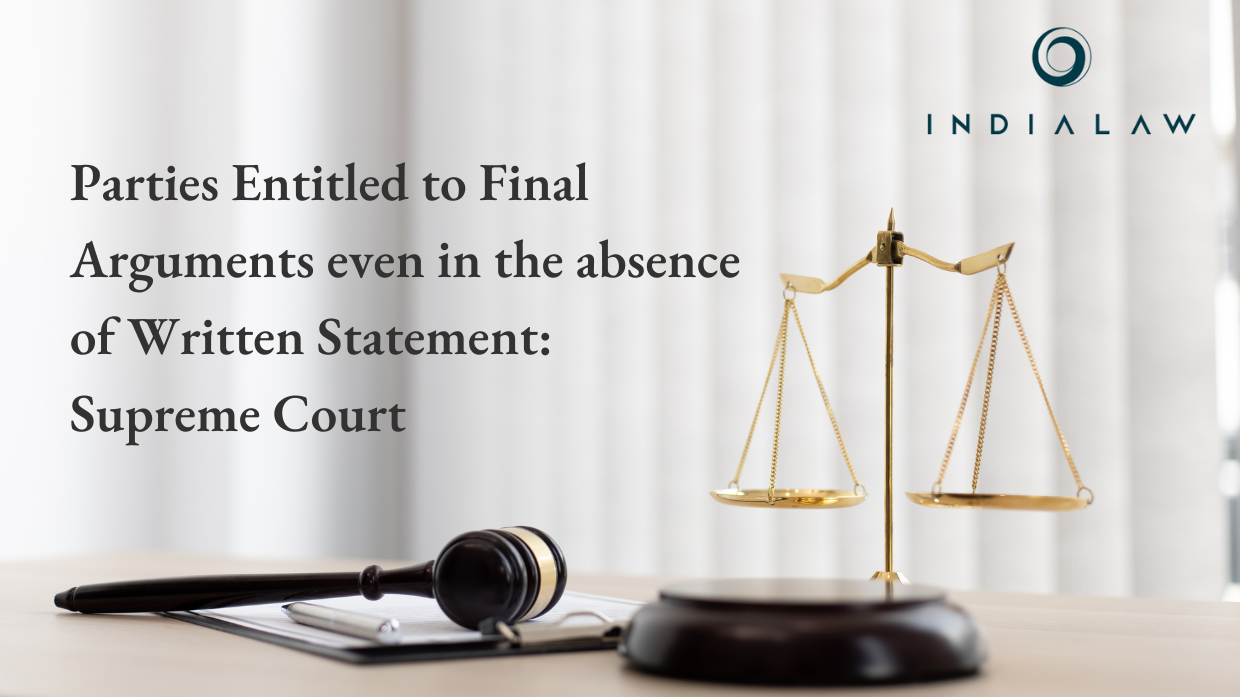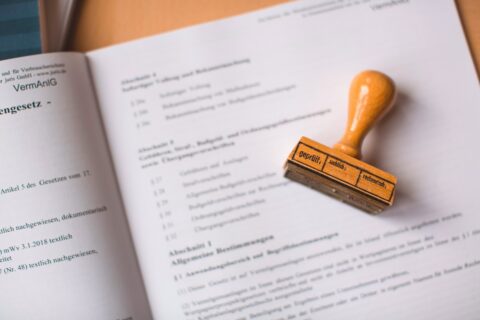Parties Entitled to Final Arguments even in the absence of Written Statement: Supreme Court

In a remarkable judgement, the Division Bench of the Hon’ble Supreme Court comprising of Justice B. V. Nagarathna and Ujjal Bhuyan, has set aside the order of the National Consumer Disputes Redressal Commission (“NCDRC”), for violating the principles of natural justice. The Court clarified that even if a party did not file a written statement before the NCDRC, it cannot be barred to address its final arguments before the NCDRC.
For the ease of the readers, the principle of natural justice says that everyone has a right of fair hearing. The Supreme Court held that failure to afford a party a fair chance to be heard would contravene the principles of natural justice. In the present case, the NCDRC barred the Appellant from participating in the final arguments as there was no written statement on record.
The background of the case is that Arn Infrastructure India Ltd. (“Appellant”) was aggrieved by the order dated 27.10.2022 passed by the NCDRC refusing to grant adjournment to the Appellant’s proxy Counsel as no written statement was filed by the Appellant and that it has not participated in the proceedings before the NCDRC.
The complaint filed by Harsha Prasad Ghosh (“Complainant/ Respondent”) was heard and decided by the NCDRC, directing the Appellant to return the entire amount that was deposited by the complainant with an annual interest of 9% p.a. from the date of deposit till the time of actual payment, within two months from the date of impugned order dated 27.10.2022.
Being aggrieved by the order of the NCDRC, the Appellant filed a Miscellaneous Application for recalling the order dated 27.10.2022. The NCDRC rejected the recall application.
The Appellant moved to the Hon’ble Supreme Court challenging the order of the NCDRC.
The Supreme Court considered the material on record and analyzed the order of the NCDRC. The Court noted that the proxy Counsel had appeared before the NCDRC to seek adjournment and the same was refused by the NCDRC. The Supreme Court held that even though the Appellant did not file written statement, he has the right to address the final arguments.
The Court, while highlighting the principle of natural justice, clarified that “However, the fact remains that the counsel was engaged to seek an adjournment in order to address arguments on merits. The opposite party had the right to do so even in the absence of filing its written version against the complaint. Since the request for adjournment was refused and only the complainant was heard on merits, we find that there has been a violation of the principles of natural justice.”
Findings of the Supreme Court
- The Appellant has a right to address the arguments even in the absence of the written statement.
- There was a clear violation of the principle of natural justice as the complaint was heard and decided without participation of the Appellant during the arguments.
- On the contention of the Respondent’s Counsel that even the Vakalatnama was not filed on behalf of the Appellant before the NCDRC. The Court emphasized on the fact that the Appellant had engaged Counsel to seek an adjournment before the NCDRC to address arguments on merits;
- The NCDRC refused to grant adjournment to the Appellant, and he was not granted an opportunity to address the arguments.
On the above findings, the Supreme Court set aside the order of the NCDRC and the matter was remanded to the NCDRC to grant a reasonable opportunity to the parties to address the arguments on merits in the complaint.
The Supreme Court has given clarity that the principle of natural justice cannot be violated, and a party should be given an opportunity to participate in the arguments irrespective of the fact that a written statement was not filed. The case must be decided on merits by hearing both the parties.
By entering the email address you agree to our Privacy Policy.



